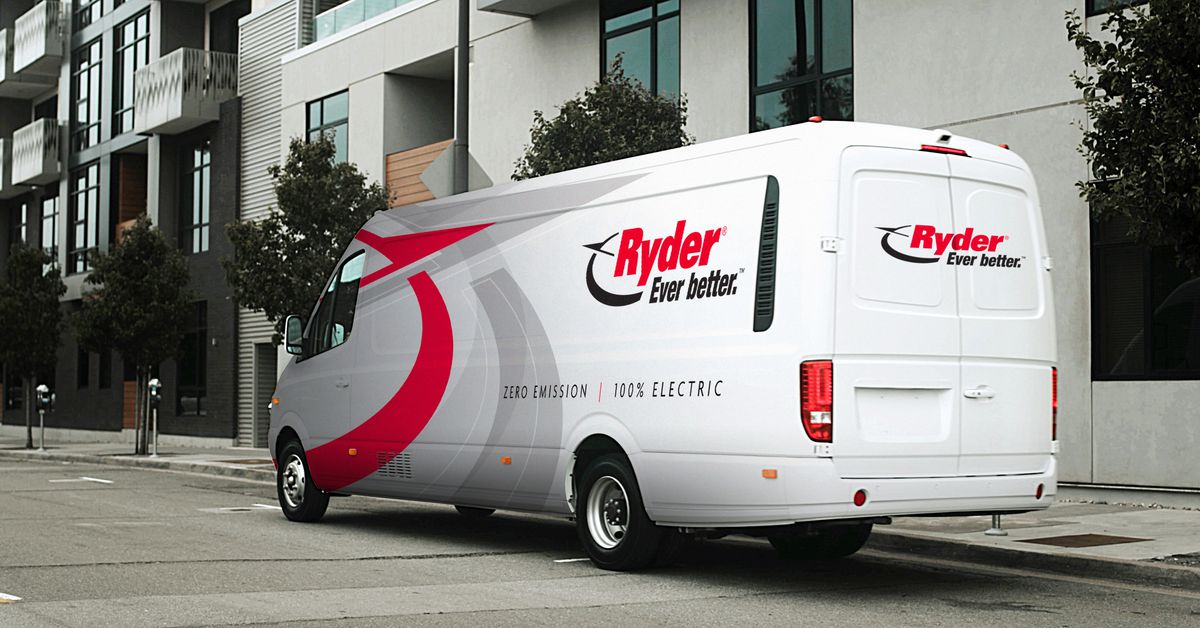Ryder says EV startup Chanje owes millions for undelivered vans
Source: The Verge added 18th Mar 2021Truck rental company Ryder says it’s owed nearly $4 million from EV startup Chanje after it failed to deliver 100 of the 125 vans promised back in 2017, according to a previously unreported lawsuit in Florida.
The lawsuit comes as a massive shift toward electric propulsion is underway in the commercial vehicle space, with new startups raising billions of dollars and established automakers announcing electric delivery vans and trucks at a regular clip.
Chanje emerged from stealth in 2017 and is one of a number of electric vehicle startups that have called California home. Like many of its peers, it got early attention by hiring a few former execs from Tesla, and even poached some talent from fellow startup Faraday Future. Also like many of those California EV startups, Chanje is owned by a larger Chinese automotive company — in this case one called FDG.
But whereas others at the time were focused on luxury passenger cars, Chanje set out to make electric delivery vans instead. Ryder was Chanje’s first big customer, pledging to buy 125 vans back in 2017. The truck rental company agreed to pay $45,000 for each of the vehicles from Chanje, with $35,000 per vehicle up front and $10,000 per vehicle upon delivery. As such, Ryder made an initial deposit of $4,375,000 in 2017. Ryder was also supposed to be the exclusive sales and service provider for the startup’s vans.
Ryder received 22 vehicles from Chanje by the end of 2017, but when it went to pay the $10,000 deposit on those, it mistakenly paid the full $45,000 for each, an overpayment of $770,000. That’s when the trouble started, according to the lawsuit.
Ryder made “repeated requests” to be reimbursed for the overpayment, but Chanje told the truck rental company it did not have the cash to pay Ryder back, according to the complaint. Chanje eventually delivered three more electric vans, but never delivered the remaining 100. Ryder tried to terminate the contract and recoup the $3.5 million in deposits it paid on those vans it never got, but Chanje balked.
In early 2019, according to the lawsuit, Ryder got FDG to agree to loan money to Chanje to pay the $770,000 in overpayments. In late 2019, Ryder again got FDG to agree to loan money to Chanje to pay back the $3.5 million in deposits. Chanje ultimately paid Ryder back $500,000 of the overpayment money, but hasn’t paid the truck rental company another dollar since. Ryder therefore says it’s still owed $3,770,000.
Ryder, Chanje, and FDG did not immediately respond to requests for comment.
In 2018, Ryder had arranged to have FedEx lease 900 Chanje vans and buy 100 more. But as it started to fight Chanje and FDG for the money it was owed in 2019 and 2020, Ryder tried to give the electric van startup and its parent company an out. It struck an agreement with Chanje and FDG that said if they delivered at least 700 vans to FedEx, Ryder would waive the $3.5 million in deposit money. “Chanje did not meet its obligations and deliver the 700 vehicles” to FedEx, Ryder’s lawyers write.
It’s unclear if Chanje delivered any vans to FedEx. FedEx also said in early 2020 that it was developing “groundbreaking charging infrastructure” with Chanje at a few dozen stations in California, and the status of that project is also unclear. FedEx did not immediately respond to a request for comment.
Chanje has been quiet since its debut in 2017, aside from the announcements with FedEx. The startup has been sued more than once in Los Angeles Superior Court by former employees who say they’re owed tens of thousands in back pay and bonuses. Chanje has also been hit with liens from the California Secretary of State for not paying taxes.
In the time since Chanje came onto the scene, commercial electric vehicle companies have taken off as governments around the world push to reduce harmful emissions. The UK’s Arrival recently went public after merging with a special purpose acquisition company, raising nearly $700 million at a $5.4 billion valuation. General Motors even spun out an entire business dedicated to commercial EVs.
brands: First General Motors It Million New One Space Stealth Superior Vans WAS media: 'The Verge' keywords: Startup
Related posts
Notice: Undefined variable: all_related in /var/www/vhosts/rondea.com/httpdocs/wp-content/themes/rondea-2-0/single-article.php on line 88
Notice: Undefined variable: all_related in /var/www/vhosts/rondea.com/httpdocs/wp-content/themes/rondea-2-0/single-article.php on line 88
Related Products
Notice: Undefined variable: all_related in /var/www/vhosts/rondea.com/httpdocs/wp-content/themes/rondea-2-0/single-article.php on line 91
Warning: Invalid argument supplied for foreach() in /var/www/vhosts/rondea.com/httpdocs/wp-content/themes/rondea-2-0/single-article.php on line 91
